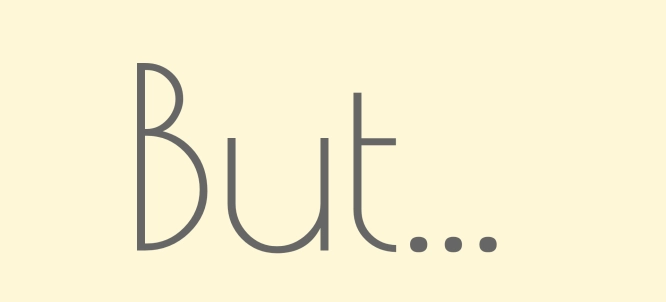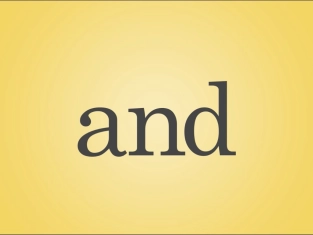by PushtoLearn
Can You Start a Sentence with But?
Table of Contents
Why Start a Sentence with "But"?
Starting a sentence with "but" can make your writing more engaging and easier to read. It helps to emphasize a contrast or a change in direction in your thoughts. For example:
➡️ I wanted to go to the park. But it started raining.
➡️ She studied hard for the test. But she didn't pass.
In both examples, "but" introduces a new idea that contrasts with the previous statement.
Common Errors
A common mistake is using "but" too often at the beginning of sentences. While it’s fine to do so, overusing it can make your writing feel choppy. Instead, try to mix it up by using other transition words like "however," "yet," or "still."

Everyday Use
Starting a sentence with "but" is something you hear and see every day, especially in casual conversation, social media, and even professional writing. For example:
➡️ But the real question is, can we afford it?
➡️ But first, let me explain what happened.
These sentences feel natural and help keep the flow of conversation or writing smooth.
The Evolution of Language Rules
The so-called "rule" against starting a sentence with "But" originates from an overly prescriptive approach to English grammar. This rule was taught to many of us in school as a way to avoid sentence fragments or overly casual writing. However, as language evolves, so too does its usage in writing. Today, many grammarians and writing experts acknowledge that this rule is more of a guideline. In fact, prominent style guides like The Chicago Manual of Style now accept the use of conjunctions at the beginning of a sentence when used purposefully.
Why Writers Use "But" to Start a Sentence
Starting a sentence with "But" can serve several functions in writing:
Emphasis and Contrast: Using "But" at the beginning of a sentence can create a stark contrast with the preceding statement, highlighting a shift in thought or a counterpoint. For example:
➡️ "I thought the movie would be boring. But it turned out to be surprisingly good."
Creating a Conversational Tone: In creative and narrative writing, starting with "But" can help achieve a more conversational or informal tone, making the text feel more approachable and engaging to the reader. For instance:
➡️ "She knew she should apologize. But she couldn’t bring herself to do it."
Sentence Variety: Varying sentence structure is crucial in writing to maintain the reader's interest. Beginning a sentence with "But" can break up long, complex sentences and introduce rhythm and flow to the writing.
When Not to Use "But" at the Beginning of a Sentence
While starting a sentence with "But" is increasingly accepted, it’s essential to consider the context:
Formal Writing: In highly formal writing, such as academic papers or legal documents, beginning a sentence with "But" might still be frowned upon. In these cases, using "However" or restructuring the sentence might be more appropriate.
Instead of: "But the results were inconclusive."
Try: "However, the results were inconclusive."
Overuse: Like any stylistic device, overusing "But" at the beginning of sentences can weaken its impact. It’s most effective when used sparingly and intentionally. If every other sentence starts with "But," it can make the writing feel repetitive or lazy.
Examples from Literature
Many renowned authors have successfully started sentences with "But" to great effect:
⭐ George Orwell, in his essay "Politics and the English Language," writes, "But one can often be in doubt about the effect of an expression."
⭐ Jane Austen, in Pride and Prejudice, uses "But" to start sentences, adding to the fluidity and natural flow of the dialogue: "But no sooner had he made it clear to himself and his friends that she had hardly a good feature in her face, than he began to find it was rendered uncommonly intelligent by the beautiful expression of her dark eyes."
In summary, starting a sentence with "But" is a stylistic choice that can add emphasis, contrast, and a conversational tone to writing. While it might still be advised against in very formal contexts, it is widely accepted and often encouraged in creative and narrative writing.
FAQ
Can I start a sentence with "but" in formal writing?
Yes, you can, but it's often better to use alternatives like "however" in very formal writing.
Is it a grammar mistake to start a sentence with "but"?
No, it's not a grammar mistake. It's a stylistic choice.
What are some alternatives to starting a sentence with "but"?
You can use "however," "yet," "still," or "nevertheless" as alternatives.
Can I start a sentence with "but" in an essay?
Yes, starting a sentence with "but" in an essay is acceptable, especially if you want to emphasize contrast.
Why do people say not to start a sentence with "but"?
This advice is often given to help students avoid overusing "but" and to encourage more varied sentence structures. However, it's not a strict rule.
Similar topics:
Can You Start a Sentence with Because?
Can You Start a Sentence with And?
Can you Start a Sentence with Or?
Can You Start a Sentence with So?
Can You Start a Sentence with As?
Can You Start a Sentence with However?
Can You Start a Sentence with Also?

